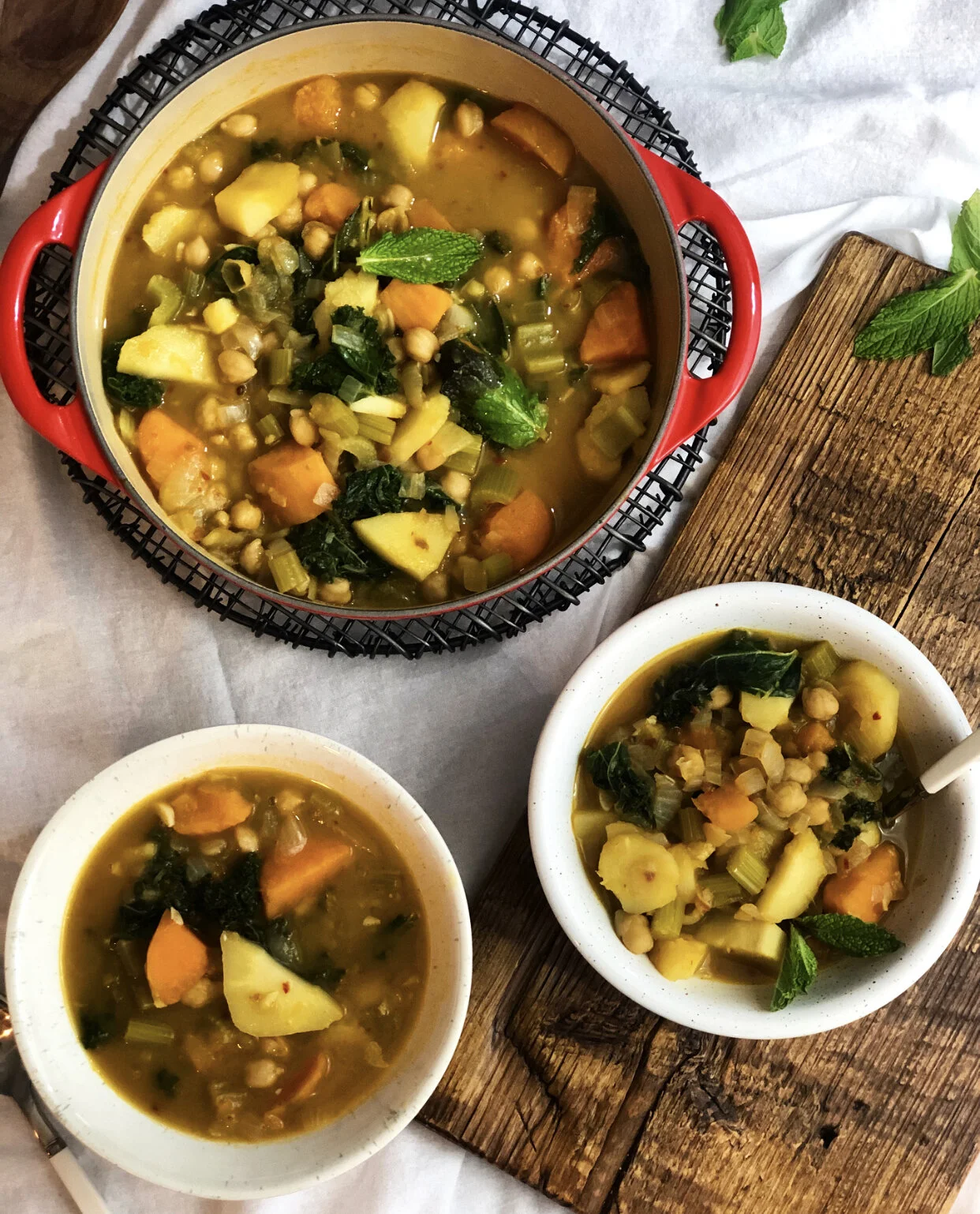Harissa, Chickpea and Vegetable Soup
For those who don't know, harissa is a North African condiment made by blending hot peppers, oils and spices into a paste. Depending on which brand you buy, harissa can vary a lot in its spice level. That's why this recipe calls for a range of harissa rather than a specific amount. For reference, I used 1 tablespoon of Les Moulins Mahjoub harissa and it was plenty spicy.
This recipe also features lots of sweet winter veggies, which perfectly compliment the harissa spices. Chickpeas and kale tie the whole thing together with a nutritional punch. All in all, this soup is the perfect companion to a snowy winter day, so snuggle up and get your soup on.
Let me know what you think of the recipe and don’t forget to follow the sustainability tips below!
Time: 30 minutes
Serves: 4-6 servings
Ingredients
3 tablespoons olive oil
12 ounces diced yellow onion (from about 1 large onion)
1 pound sweet potatoes (from 2-4 sweet potatoes)
6 ounces celery (from 4-6 stalks)
1 pound parsnips (from 2-3 parsnips)
1 teaspoon salt
1-2 tablespoons harissa paste
1 16-ounce can chickpeas, aka garbanzo beans
4 cups vegetable broth
3-4 loosely packed cups kale
More salt to taste
Mint leaves for garnish
Steps
Heat olive oil in a large stockpot over medium heat. Once hot, add diced onion, chopped and peeled sweet potatoes, chopped celery, chopped parsnips and about a teaspoon of salt. Let saute until onions are translucent and sweet potatoes are beginning to soften- about 10 minutes. Add the harissa and let heat for another minute, or until fragrant.
Add chickpeas (including their juice) and vegetable broth. Turn heat up to medium-high until it boils. Then, turn heat down to low and let simmer for 10-20 minutes, or until the sweet potatoes are easily pierced with a fork. Add in the kale (torn into 2-inch pieces) and stir until kale is wilted. Adjust harissa and salt to taste. Garnish with mint or your herb of choice. Serve!
Sustainability tips
Vegetables: Make this soup when all the veggies are in season in late fall or winter. This will make it easier to buy locally and organically, which will cut down on greenhouse gas emissions from travel and nasty pesticides.
Vegetable broth: Using homemade vegetable broth is the most sustainable option here. That way, you can make sure you're using organic and/or local ingredients and put your veggie scraps to good use.



